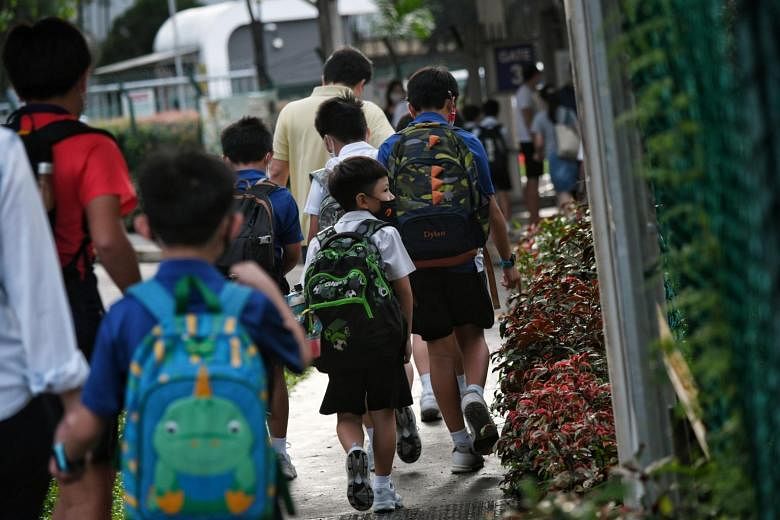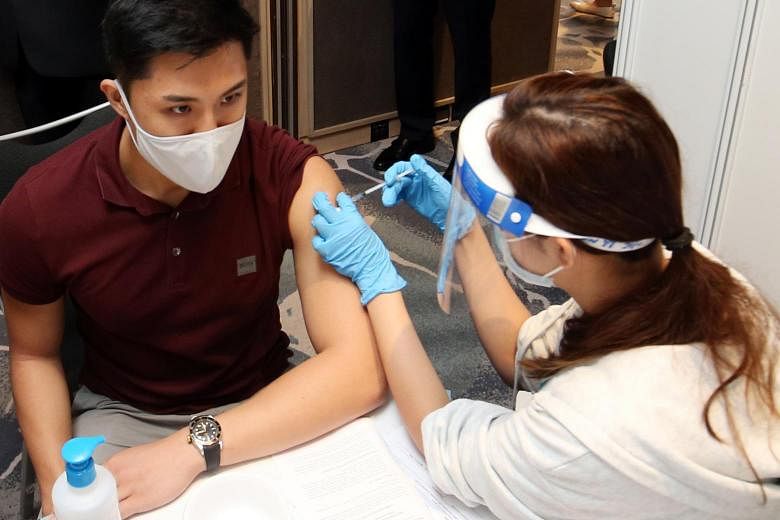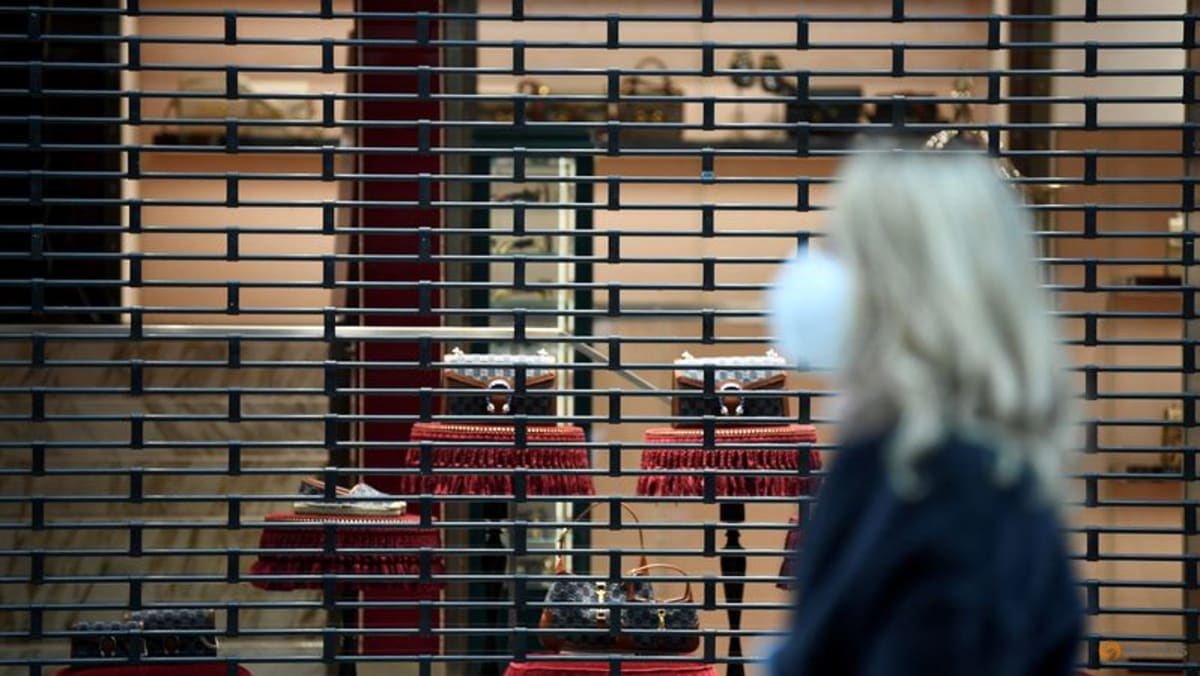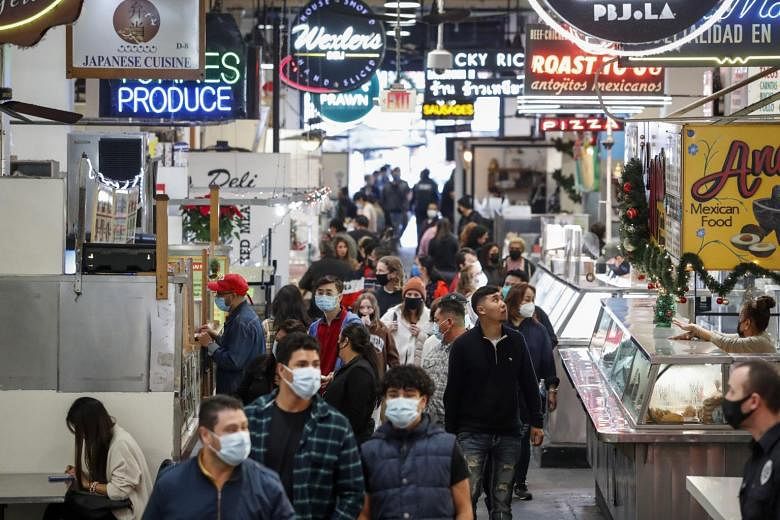Putin warns he’s ready to use his military. McDonald's is forced to ration customers' fries in Japan. Global stocks rebound. Here’s what you need to know this morning.
Vladimir Putin warned he's ready to use his military to counter NATO’s expansion toward Russian borders, but said he hoped for a diplomatic solution to rising tensions as the U.S. said it was ready to discuss his security demands. The Russian president told the German chancellor that Moscow wants "legally enshrined" security guarantees that would bar any NATO advance eastward or the deployment of missiles in countries bordering Russia. The U.S. and Europe accuse Russia of a massive build-up of troops near Ukraine in preparation for a possible invasion as early as next month, something Russia denies. The U.S. and its allies are working on plans to impose painful new sanctions on Russia if it invades Ukraine.
President Joe Biden said omicron will result in more infections among vaccinated Americans, but with few or no symptoms, while the unvaccinated potentially face a winter of severe illness and death. He said those who had had their shots should proceed with Christmas plans, as the U.S. revealed omicron had become the country’s dominant strain. In the U.K. Boris Johnson put a relatively normal Christmas at the top of his wish, ruling out stricter restrictions before the festivities end. Elsewhere Thailand halted its quarantine-free entry program, dealing a fresh blow to the tourism industry; Singapore found its first omicron cluster; and New Zealand pushed back its border reopening. Meanwhile, back in the States, the FDA is poised to authorize separate pills from Pfizer and Merck to treat higher-risk infected patients as soon as this week.
A global rebound in stocks may continue in Asia on Wednesday as investor sentiment improves after being roiled by uncertainty over the omicron virus strain and stimulus outlook. Futures for Japan, Australia and Hong Kong rose. The S&P 500 snapped three days of declines and the technology-heavy Nasdaq 100 climbed more than 2%. A gauge of Chinese shares traded in the U.S. surged about 7%. Thinner trading volumes heading into the Christmas holidays could exacerbate market swings
China’s crackdown on Taiwanese companies operating on the mainland risks accelerating a gradual decoupling that’s been happening for years due to higher costs and increased local competition. Far Eastern Group was fined $14 million in November for what officials and state media said were environmental, land-use, health and safety violations. But Chinese officials made it clear that the the fines were connected to Far Eastern’s role as one of the biggest donors to the party of Taiwan’s President Tsai Ing-wen. Taiwan’s Economic Minister said the Far Eastern incident had triggered a wave of Taiwanese businesses looking to return home
China plans to ban employers from stating gender preferences in job ads or asking female applicants about their marital and pregnancy status under a proposed overhaul of an almost three-decade-old women’s rights law. While gender discrimination is already broadly illegal in China, current laws are vague and enforcement is poor. Meanwhile in India, Prime Minister Narendra Modi’s government has presented controversial new legislation in parliament, seeking to raise the legal age at which women can marry to 21 from 18.
What We’ve Been Reading
And finally, here’s what Tracy’s interested in today
On Monday, Turkish President Recep Tayyip Erdogan sent the lira on a round trip with the unveiling of emergency measures aimed at halting the Turkish currency's stunning slide. My Bloomberg colleague Asli Kandemir has a great explainer of exactly how it's supposed to work over here. But put simply, Turkey is promising to make up for losses incurred by holders of lira deposits should the lira's decline against hard currencies exceed bank interest rates. The hope is that by setting up a floor under the Turkish currency, people will feel more comfortable keeping their lira as opposed to shifting it to dollars or gold (or Bitcoin!) to escape inflation and negative real rates. Using the program, however, comes with one big catch: participants have to agree to lock-up their lira for between three and 12 months.

I've seen lots of different descriptions of Erdogan's new plan, with some arguing that it amounts to a backdoor rate hike and others saying that it looks like a clandestine currency peg. Then there's the DeFi interpretation. There are shades of 'HODL' and (3,3) here, two of the crypto market's biggest memes. The first saying is an enjoiner to encourage people to hold onto their crypto when times are tough (rather than selling), while (3,3) was created by OlympusDAO to describe the game theory behind its OHM coin. With Olympus, people basically stake (deposit) money in order to earn rewards in Ohm. The payouts are highest when everyone stays staked and agrees not to unstake (or withdraw). So (3,3) represents the maximum positive outcome for OlympusDAO participants.
In a similar way, Erdogan's plan works so long as people agree to keep their money locked up and the lira stops falling (unlike with OHM, there are minimum lock-up periods and users will be penalized if they withdraw their money too early). If people don't choose to HODL lira and the currency keeps declining, then Turkey's Treasury could be on the hook for a wider and wider differential between bank rates and hard FX. The concern, as my Bloomberg colleagues have written, is that this places a burden on the budget which could well end up getting monetized and then generate even higher inflation and more withdrawals. In other words, Erdogan just made a very big bet on the power of (3,3).
You can follow Tracy Alloway on Twitter at @tracyalloway.
— With assistance by Tracy Alloway
https://news.google.com/__i/rss/rd/articles/CBMibWh0dHBzOi8vd3d3LmJsb29tYmVyZy5jb20vbmV3cy9uZXdzbGV0dGVycy8yMDIxLTEyLTIxL2ZpdmUtdGhpbmdzLXlvdS1uZWVkLXRvLWtub3ctdG8tc3RhcnQteW91ci1kYXkta3hncXg2am3SAQA?oc=5
2021-12-21 23:36:13Z
CAIiEDqA4B7hORNatWERwRmmV4gqGQgEKhAIACoHCAow4uzwCjCF3bsCMIrOrwM
/cloudfront-us-east-2.images.arcpublishing.com/reuters/Y26WUV3QHFMVJKZ34RR2UEGET4.jpg)




